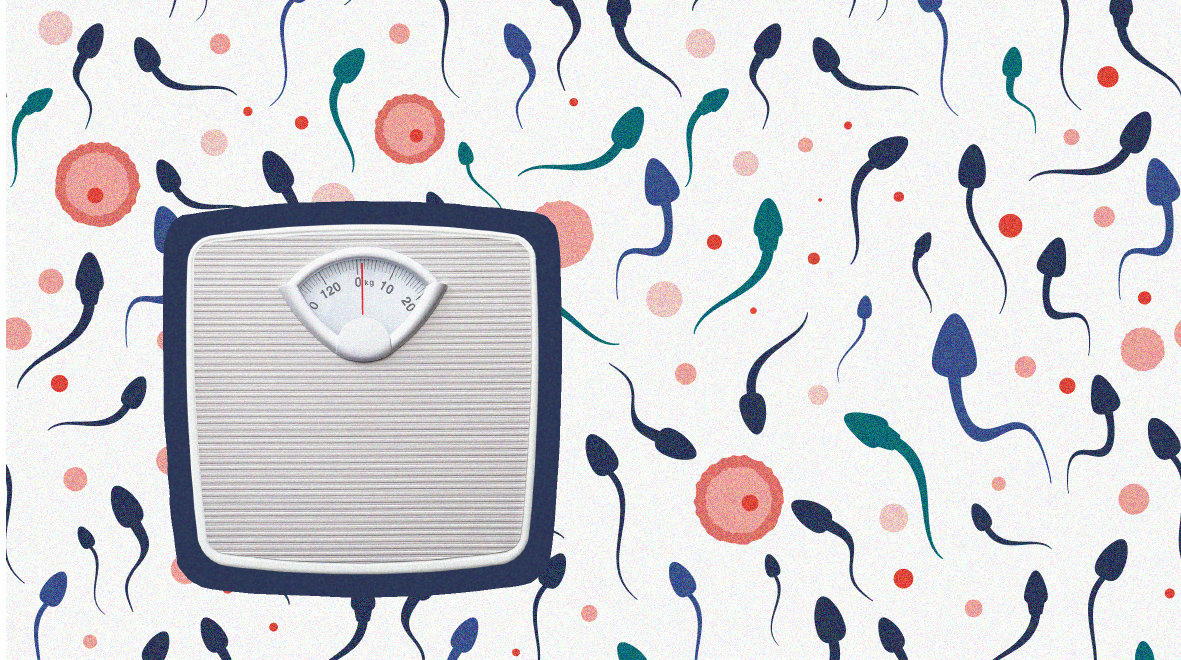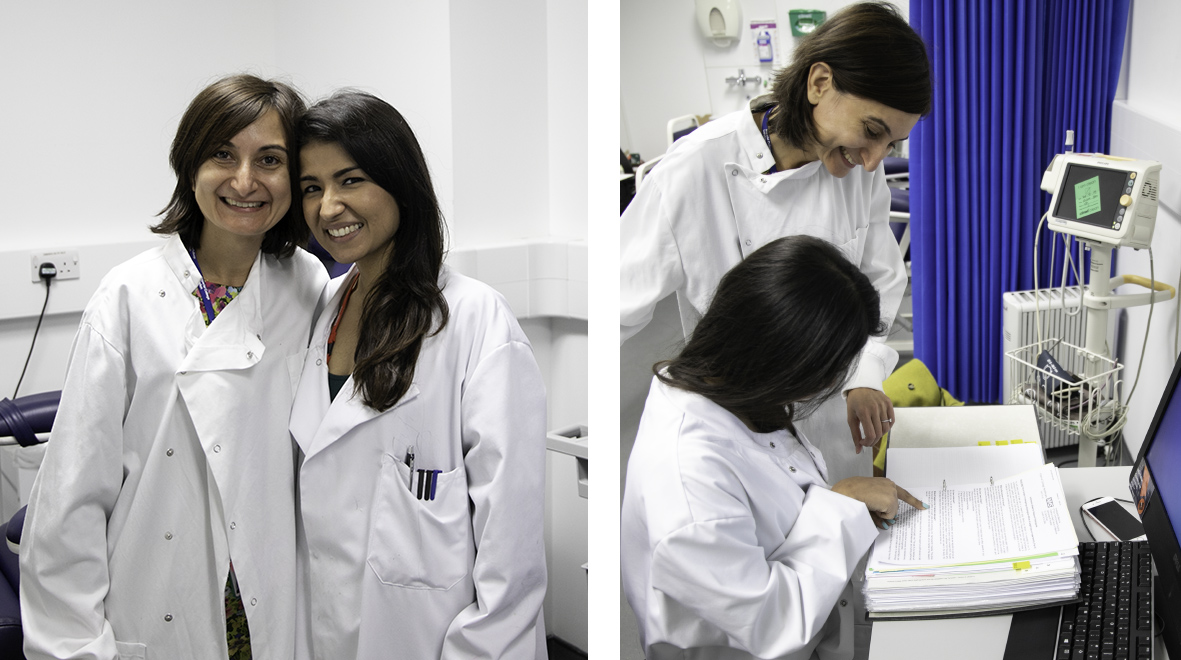
With NHS funding for IVF diminishing, Imperial researchers are looking at weights loss as a way to support men who have obesity-related reproductive dysfunction.
Infertility is the inability to have children after 12 months of regular unprotected intercourse and is fairly common, affecting 1 in 7 couples. Male factor infertility refers to infertility secondary to poor sperm quality, and while it is talked about less than female infertility, it is responsible for 40% of infertile cases. Obesity is a rising global epidemic, so it is no surprise that a quarter of men attending fertility centres are obese.
During the last few decades, tremendous advances have taken place in the treatment of women diagnosed with infertility. However, little progress is made for couples with male factor infertility. Therefore, the only therapy offered to couples is assisted reproduction, such as in-vitro fertilisation (IVF) therapy. IVF is effective but with NHS funding diminishing it can be expensive, as well as having potentially life-threatening complications for the female partner such as ovarian hyper-stimulation syndrome. That’s why we need to look at other options for couples affected by infertility.
But what does obesity have to do with male infertility?
Obesity causes hormonal changes with increased conversion of testosterone to oestrogen. A metabolic imbalance is often characterised by increased oxidative stress which in turn causes potential sperm DNA damage. As a result, obese men may have low sperm counts.
The most effective treatment available for obesity is weight loss surgery, also called bariatric surgery. However, the ‘acute starvation’ state induced by the rapid weight loss and nutritional deficiencies from the surgery inhibits sperm production. Bariatric surgery reduces sperm concentration within the first month post-surgery. Sperm concentration may mildly increase a year after surgery, although most men undergoing bariatric surgery have no change in their sperm concentration even at two years of follow-up. It is possible that excessive weight loss after bariatric surgery induces dramatic impairment in human sperm parameters – a marker of sperm quality. Assisted reproduction outcomes are also negatively influenced up to 18 months post bariatric surgery.
So does weight loss via diet help male factor infertility?
Diet programmes aim to generate an energy deficit below the estimated daily energy requirements leading to weight loss. Generally, low energy diets are successful at promoting weight loss and leads to improvements in metabolic health and testosterone levels in men. There are very few human studies investigating the effect of weight loss via diet on semen parameters. These studies report that gradual weight loss up to 15% of the original weight leads to improved sperm concentration and increases the likelihood of a positive pregnancy outcome. It is also reported that mild weight loss is able to improve sperm DNA content.
So what can be done?
At present, affected couples with male actor infertility have to undergo expensive forms of assisted reproduction therapies such as IVF, which are frequently associated with health risks. Obesity is associated with poor sperm function with modest weight loss increasing the likelihood to conceive. Since there are no obvious positive effects on sperm concentration from bariatric surgery up to two years of follow up, weight loss could be a simple therapy for men with obesity-related infertility. The level of caloric restriction or weight loss required to achieve meaningful improvements in sperm function have not been previously investigated.
How is caloric restriction being investigated for obesity-related male subfertility?
As Clinical Research Fellows working under the supervision of Dr Channa Jayasena in the Department of Metabolism, Digestion and Reproductive Endocrinology, we are conducting a National Institute for Health Research (NIHR) funded randomised control study at Imperial College Healthcare NHS Trust. This clinical study is unique as it is the first study which compares the impact of weight loss by different levels of caloric restriction on semen function and hormonal parameters in obese men.

The impact of weight loss on our study and participants
More than 50 obese men were recruited in our study and successfully lost weight. Investigating this cohort of men will determine the optimum level of weight loss required to improve sperm function in obese men. The effects of different levels of caloric restriction on metabolic health and hormonal profile are also investigated.
Here is one participant’s experience of the trial:
‘’My family said I need to lose weight and previous diets have failed. The support from the team has been fantastic, and I am very happy that I did it. I got an understanding of how weight is linked to high blood pressure, diabetes and how blood sugars are affected. I received good information on diet, daily calories and the healthy eating plate. I now have more energy, get better sleep, play tennis twice a week and swim sometimes. My mind feels fresher, family life is improved and I have a positive mind-set. As I lost weight I felt my appetite for relationship increased. The experience has been positive and gave me a new outlook. I now focus on my portions, what I am eating and getting the right balance of food the body needs.’’

Results of this study will inform us for the first time whether energy restriction using low energy diet increases sperm quality significantly when compared with standard NHS lifestyle advice in obese men with reduced reproductive capacity. This could provide invaluable information for an understudied health problem affecting thousands of men within the UK each year. We are looking forward to publishing the results of the study in the near future.
Dr Anastasia Dimakopoulou and Dr Aditi Sharma are Clinical Research Fellows at the Department of Metabolism, Digestion and Reproductive Endocrinology, working with Dr Channa Jayasena.